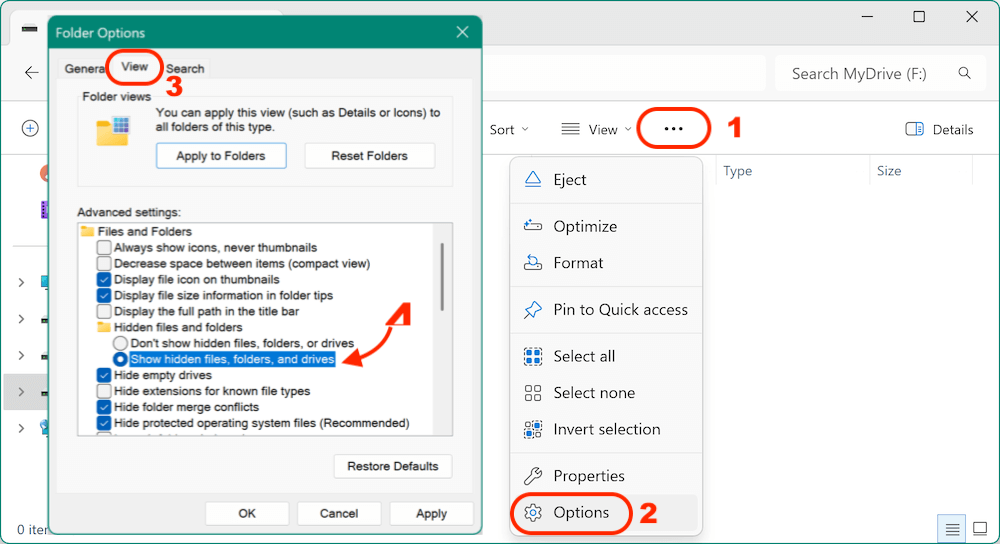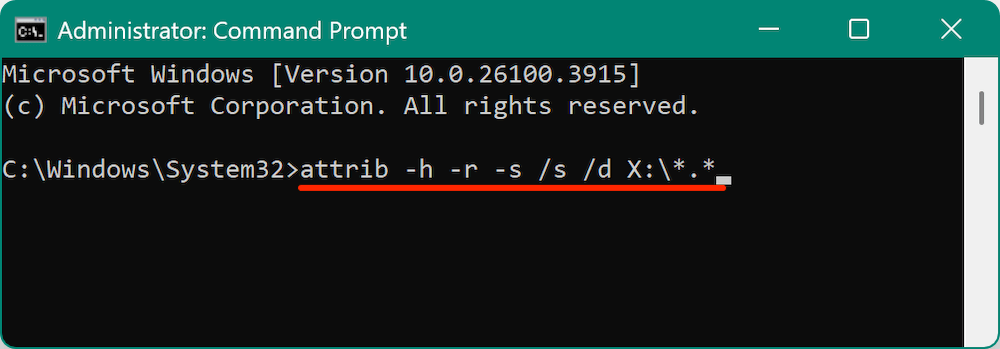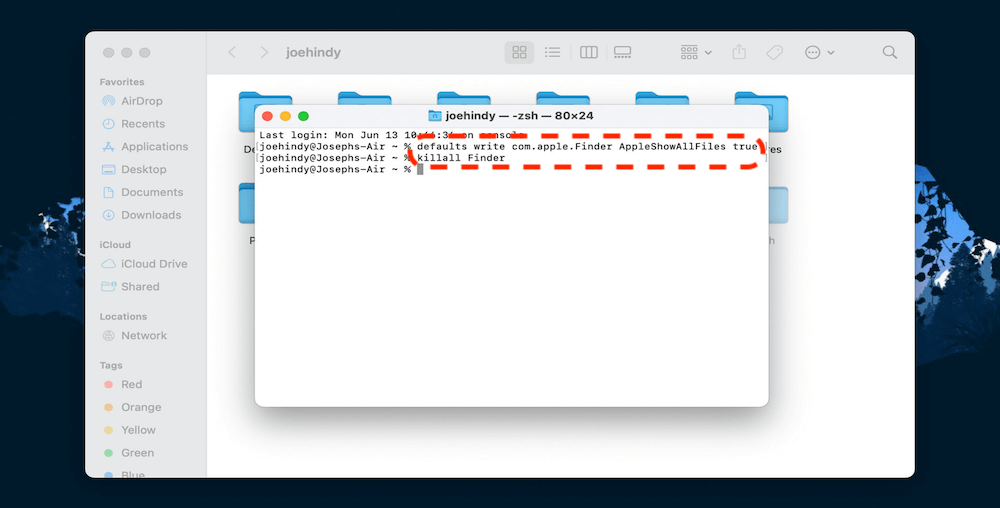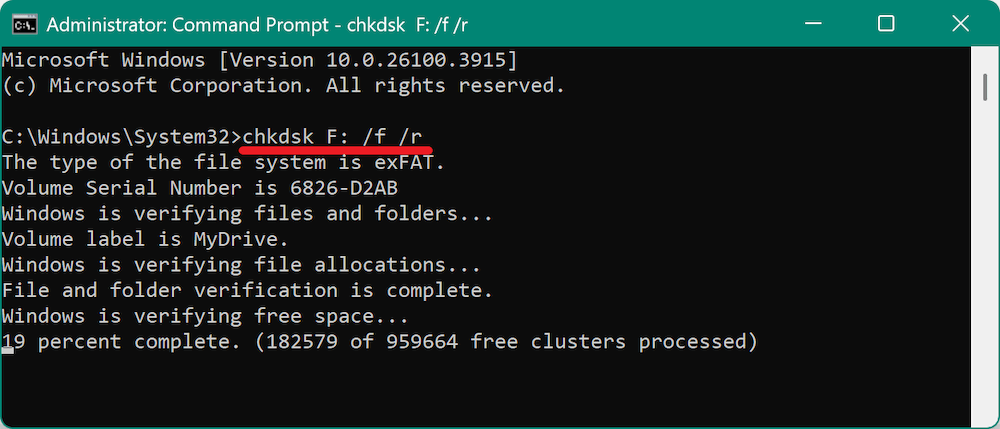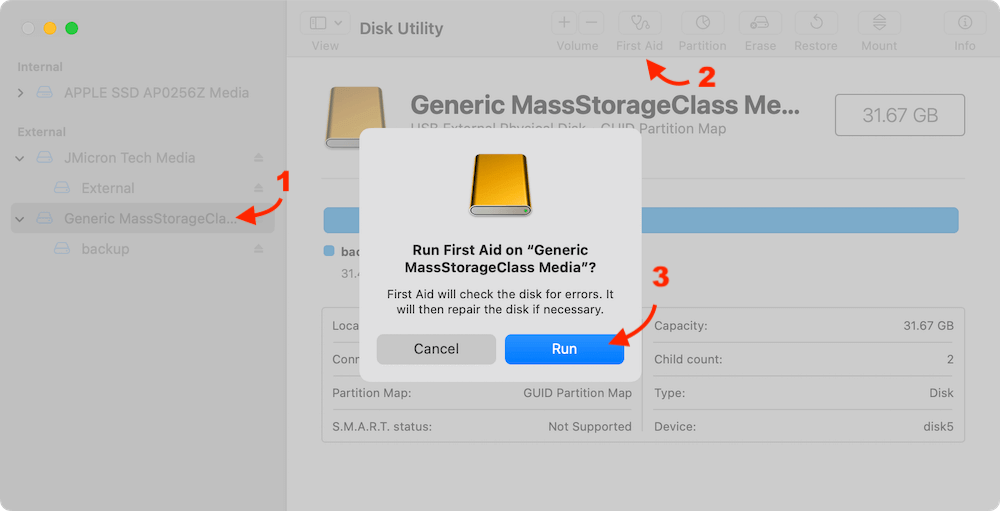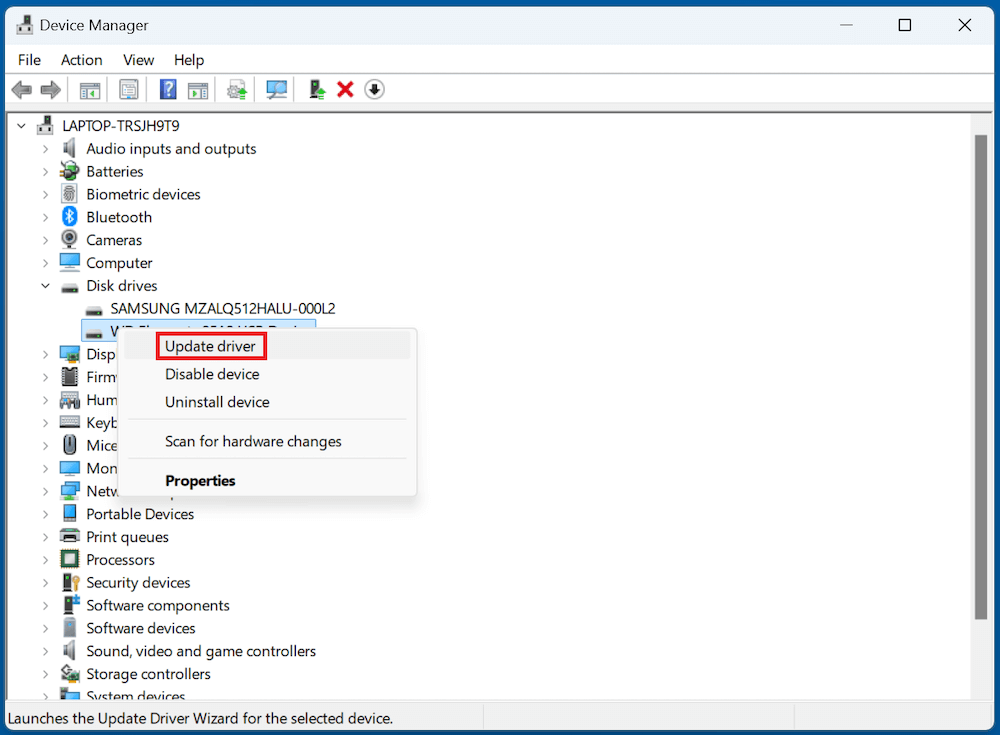Before we start: When you found the files on an external hard drive are disappeared, you can first check the hidden files or reconnect the drive. If the files are really missing or lost, use Donemax Data Recovery or other recovery tools to recover the files.
PAGE CONTENT:
- Why Do Files Disappear from an External Hard Drive?
- Initial Checks for Disappeared Files on External Drive
- Recover Disappeared Files from External Drive with Data Recovery Software
- Fix External Hard Drive Issues Before or After Recovery
- How to Prevent Future File Disappearance on External Hard Drive?
- Conclusion
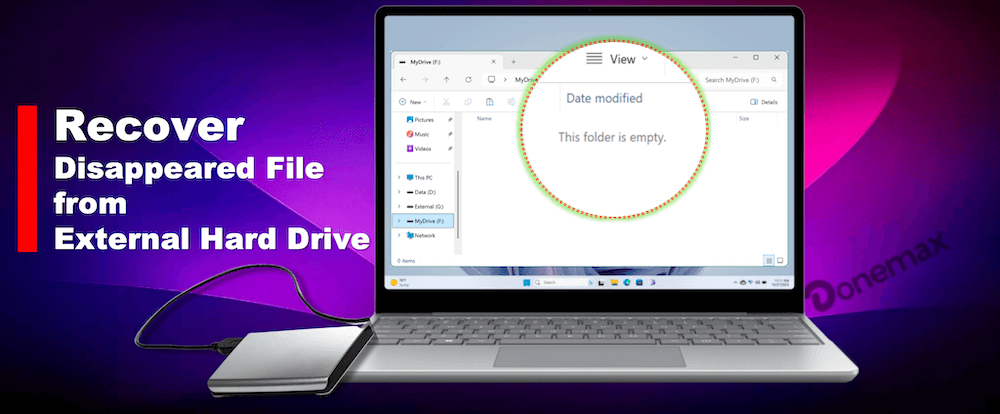
External hard drives are widely used for storing everything from work documents and project files to personal photos and videos. However, few things are more alarming than plugging in your external hard drive and discovering that some—or all—of your files have mysteriously disappeared. Fortunately, there are various ways to recover files which are disappeared from an external hard drive, depending on the cause. This comprehensive guide will walk you through all possible reasons, checks, and recovery solutions.
Why Do Files Disappear from an External Hard Drive?
There are several reasons why files might disappear from an external hard drive. Understanding the potential causes can help you select the right recovery strategy:
- Accidental Deletion: Files may have been mistakenly deleted, especially during file management or cleanup.
- Hidden Files: Files can become hidden due to system settings or after a malware infection.
- File System Corruption: Corrupted file systems can make your files inaccessible or invisible.
- Virus or Malware: Without your permission, malicious software may encrypt, remove, or conceal files.
- Unsafe Removal: Improper ejection or sudden disconnection may interrupt writing processes and lead to file loss.
- Drive Formatting: Accidental formatting or OS prompts can erase your data.
- Drive or Port Malfunction: Physical problems with the USB port or hard drive can interfere with file visibility.
Initial Checks for Disappeared Files on External Drive
Before jumping into advanced recovery techniques, begin with these basic troubleshooting steps:
1. Reconnect and Restart - Unplug your external hard drive, restart your computer, and plug the drive back in. Sometimes, this simple step can resolve visibility issues.
2. Check on Another Computer - Try using a separate computer to connect the drive. If the files appear, the issue is likely software-related on the original machine.
3. Try a Different USB Cable or Port - Faulty cables or USB ports are often overlooked but can be a simple fix.
4. Search by Filename - Use your operating system's search feature to look for the missing files. They might have been moved to another folder.
5. Show Hidden Files - Sometimes, spyware or the system just hides files rather than erasing them. Revealing them can be done easily on both Windows and macOS.
For Windows:
- Using File Explorer:
- Open File Explorer.
- Select the View tab located at the top.
- In the "Show/hide" column, select Hidden objects.
![recover files disappeared from an external hard drive]()
- Using Command Prompt:
- Press Win + R, and then type cmd, press Enter.
- Type the below command and hit Enter (Replace X with the drive letter of your external hard drive.):
attrib -h -r -s /s /d X:\*.*
![recover files disappeared from an external hard drive]()
This command purges files and directories of their read-only, hidden, and system file attributes.
For macOS:
- Using Finder Shortcut:
- Open the external drive in Finder.
- Press Command + Shift + . to toggle hidden files.
- Using Terminal:
- Go to Terminal.
- Type the following command:
defaults write com.apple.finder AppleShowAllFiles TRUE
- Then type:
killall Finder
![recover files disappeared from an external hard drive]()
To reverse this, change TRUE to FALSE.
Recover Disappeared Files from External Drive with Data Recovery Software
If the above steps don't help, data recovery software can scan your external hard drive and retrieve lost files.
When Should You Use Recovery Software?
You should turn to data recovery software in the following scenarios:
- You unintentionally cleared out the Recycle Bin and erased crucial files.
- Your external hard drive was formatted or shows as "RAW."
- Files disappeared after an interrupted data transfer.
- The file system is corrupted and the OS prompts you to format the drive.
- Your computer recognizes the drive, but it appears empty or unallocated.
- You see errors like "The file or directory is corrupted and unreadable."
Recommended Recovery Tools:
Here are four highly trusted tools you can use, compatible with different systems and use cases:
|
|
Disk Drill |
Recuva |
Stellar Data Recovery |
|
|---|---|---|---|---|
|
Platforms |
Windows, macOS |
Windows, macOS |
Windows only |
Windows, macOS |
|
Strengths |
User-friendly interface, deep scan support, excellent file type filtering. |
Modern interface, supports multiple file systems including NTFS, HFS+, FAT32, and EXT. |
Lightweight, fast, offers both quick and deep scans. |
Deep scan, specific file-type recovery, RAID recovery options. |
|
Ideal For |
Beginners and casual users. |
Cross-platform users and those needing multiple scan options. |
Quick recovery of recently deleted files. |
Professional users with large or damaged external drives. |
How to Use (Steps to recover data with Donemax Data Recovery):
Step 1. Download and install the recovery software Donemax Data Recovery on your computer.
Donemax Data Recovery
- Trusted data recovery software for external hard drive and other storage devices.
- Recover lost photos, videos, documents, audio, and other files.
- 100% safe and easy-to-use data recovery software for Windows and Mac.
Step 2. Launch the application and select the external hard drive from the list of available drives.
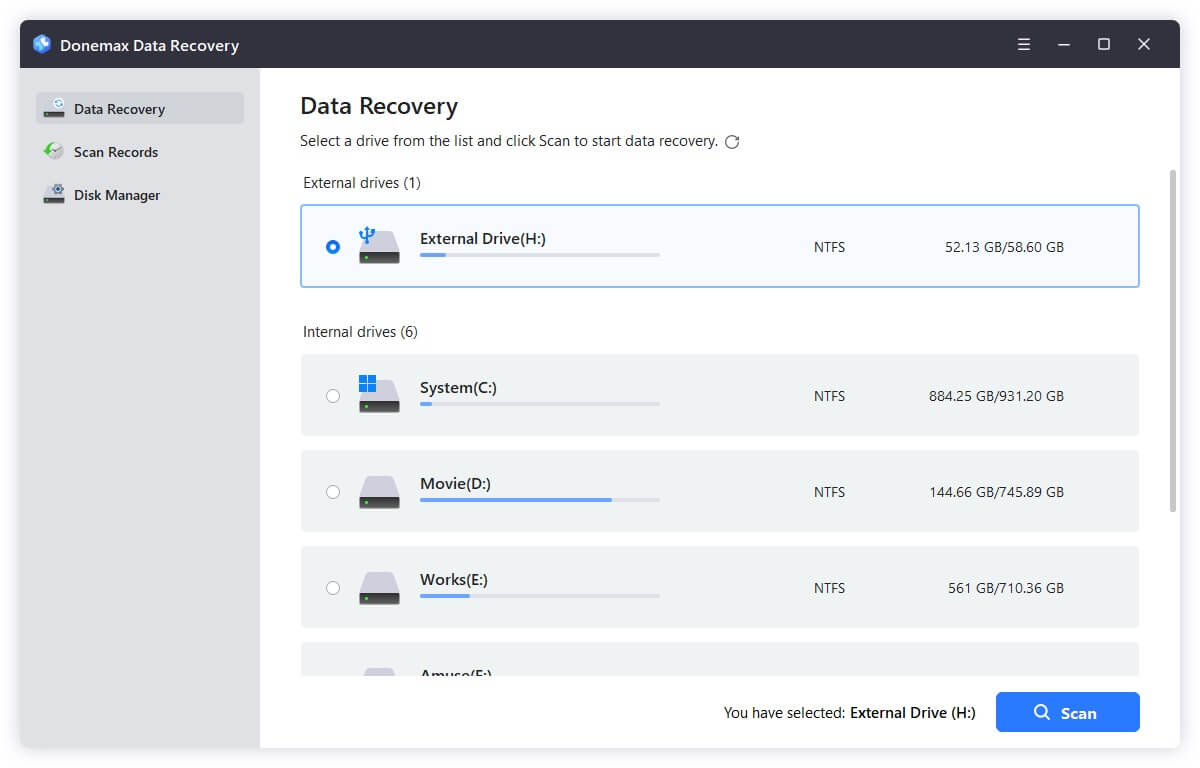
Step 3. Click on the Scan button and watch for the procedure to finish. It will take a while depending on the size of the disk, just leave it running and wait patiently.
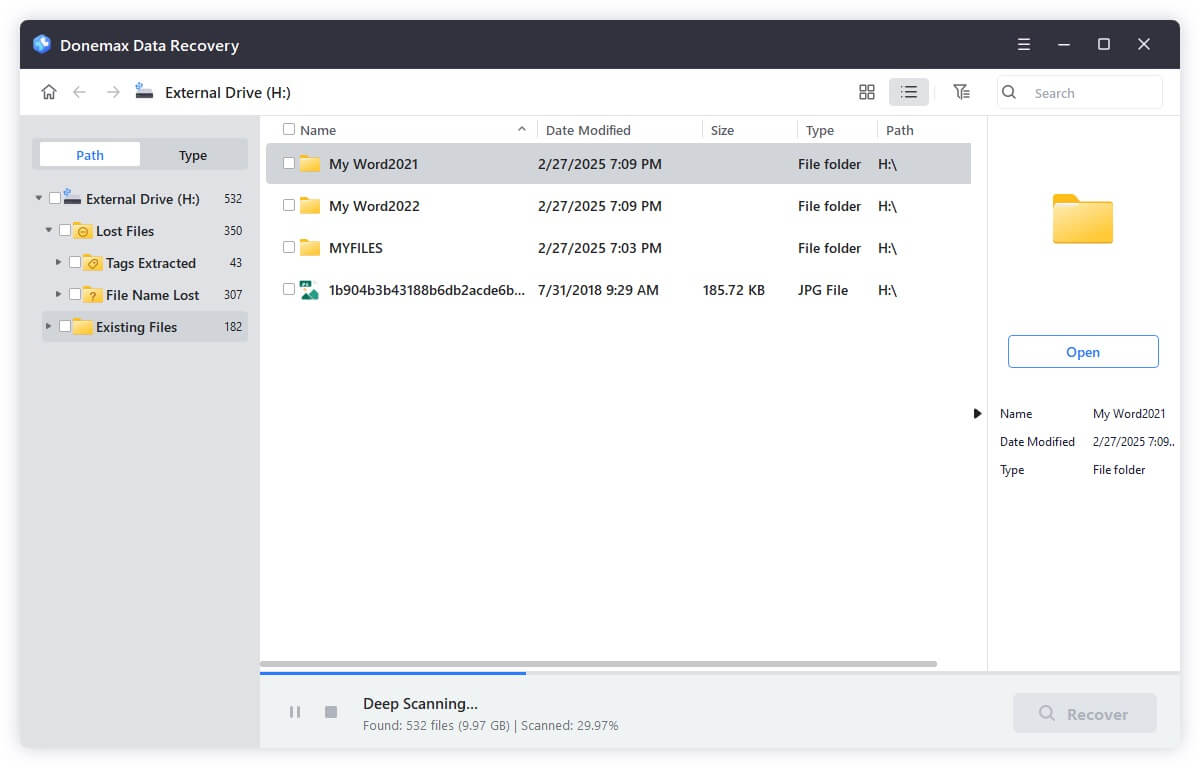
Step 4.Choose the files you wish to recover after previewing the ones that were found. Save recovered files to a different drive to avoid overwriting.
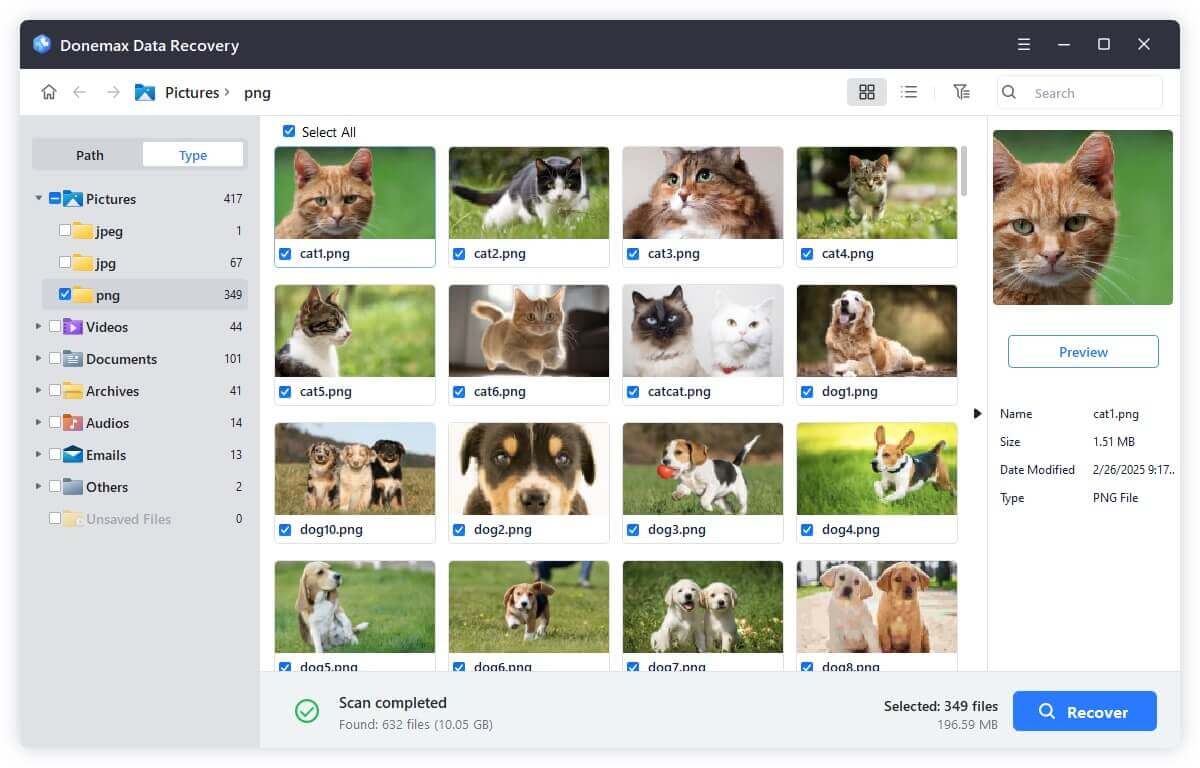
Tips for Successful File Recovery
- Stop using the drive immediately after data loss to prevent overwriting recoverable sectors.
- Run a deep scan if the quick scan fails to find your files. Some tools run deep scan automatically.
- Preview before recovery to check if files are intact.
- Check recovered files immediately for corruption or incomplete data.
Fix External Hard Drive Issues Before or After Recovery
In some cases, running repair utilities can help resolve underlying drive problems, especially if the drive is accessible but malfunctioning.
1. Use CHKDSK (Windows)
- Type cmd using Win + R, then hit Enter.
- Type the following command: (Replace X with your drive letter.):
chkdsk X: /f /r
![recover files disappeared from an external hard drive]()
This will scan the drive for errors and attempt to fix them. However, this method can overwrite data, so only use it after recovering files with data recovery software.
2. Use First Aid (macOS)
- Open Disk Utility.
- Select your external hard drive.
- Click First Aid and run it.
![recover files disappeared from an external hard drive]()
This will check for and attempt to repair file system errors.
3. Reinstall or Update Drivers (on Windows)
Outdated or corrupt drivers can cause external drives to malfunction.
- Go to Device Manager then Expand Disk Drives
- To update the driver, right-click on your external drive and choose Update.
![recover files disappeared from an external hard drive]()
Use Professional Data Recovery Services
If there are following issues with the external hard drive, then it's time to consider professional help:
- Your drive is not detected at all
- The drive makes clicking or grinding noises
- You've tried everything and failed
What to Expect:
- Experts use clean-room environments to recover data from damaged platters or corrupted firmware.
- They can often recover files that software-based tools can't access.
Cost Considerations:
- Data recovery services typically cost anywhere from $300 to $1000+, depending on the damage.
- Always get a quote and diagnosis before proceeding.
How to Prevent Future File Disappearance on External Hard Drive?
Once you recover your files, it's essential to implement precautions to avoid facing the same situation again.
1. Backup Regularly: Use reliable backup tools such as:
- Windows File History
- macOS Time Machine
- Cloud storage like OneDrive, Dropbox, iCloud, or Google Drive
2. Use Antivirus Software: Keep your system protected with real-time virus scanning and automatic updates.
3. Safely Eject Drives: Never unplug an external hard drive without safely ejecting it. On Windows, use "Safely Remove Hardware"; on macOS, use the eject icon.
4. Avoid Editing Files Directly from the Drive: Editing directly can lead to corruption, especially if the system crashes or the drive is removed during write operations.
5. Keep OS and Drivers Updated: Ensure all system and driver updates are installed regularly to maintain drive compatibility and stability.
Conclusion
The disappearance of files from an external hard drive can be unsettling, but with the right knowledge and tools, most data loss scenarios can be successfully resolved. Start with basic checks—such as verifying connections, showing hidden files, and testing the drive on another system. If that doesn't work, data recovery software can often help recover lost files efficiently. For more severe issues, professional data recovery services are your best bet.
Most importantly, take steps to safeguard your data in the future. Regular backups, careful handling of your external drive, and system hygiene are key to avoiding data loss.
If you're currently facing this issue, act quickly—because the longer a problem is left unaddressed, the lower the chances of a full recovery.


Donemax Data Recovery
One of the best data recovery programs to recover deleted, formatted or lost data from PC, Mac, HDD, SSD, USB drive, SD card, camera, RAID, Sever or other storage devices.
Related Articles
- Jul 07, 2025Best 4 Methods to Recover Deleted PST File | Outlook Data Recovery
- Jun 13, 2025Disk Drill Review: Is It Safe, How to Use It, Better Alternative
- Apr 29, 2025How to Recover Lost Data from ADATA USB Drive? [3 Methods]
- Jul 09, 2025Best 5 Methods to Recover Deleted OGM File
- Mar 07, 2024How to Recover Lost Data from Kingston SD Card or Memory Card?
- May 23, 2025[3 Methods] How to Recover Deleted GZIP (.gz) File?

Maria
Maria is one of the senior writers & editors of Donemax who lives and works in Sydney, Australia. She loves PC, Mac and Internet Technology. She has 6 years of writing articles about data recovery on PC/Mac, disk cloning solution, data eraser and computer OS optimization, etc. She is also interested in testing various software and digital products.

Gerhard Chou
In order to effectively solve the problems for our customers, every article and troubleshooting solution published on our website has been strictly tested and practiced. Our editors love researching and using computers and testing software, and are willing to help computer users with their problems
